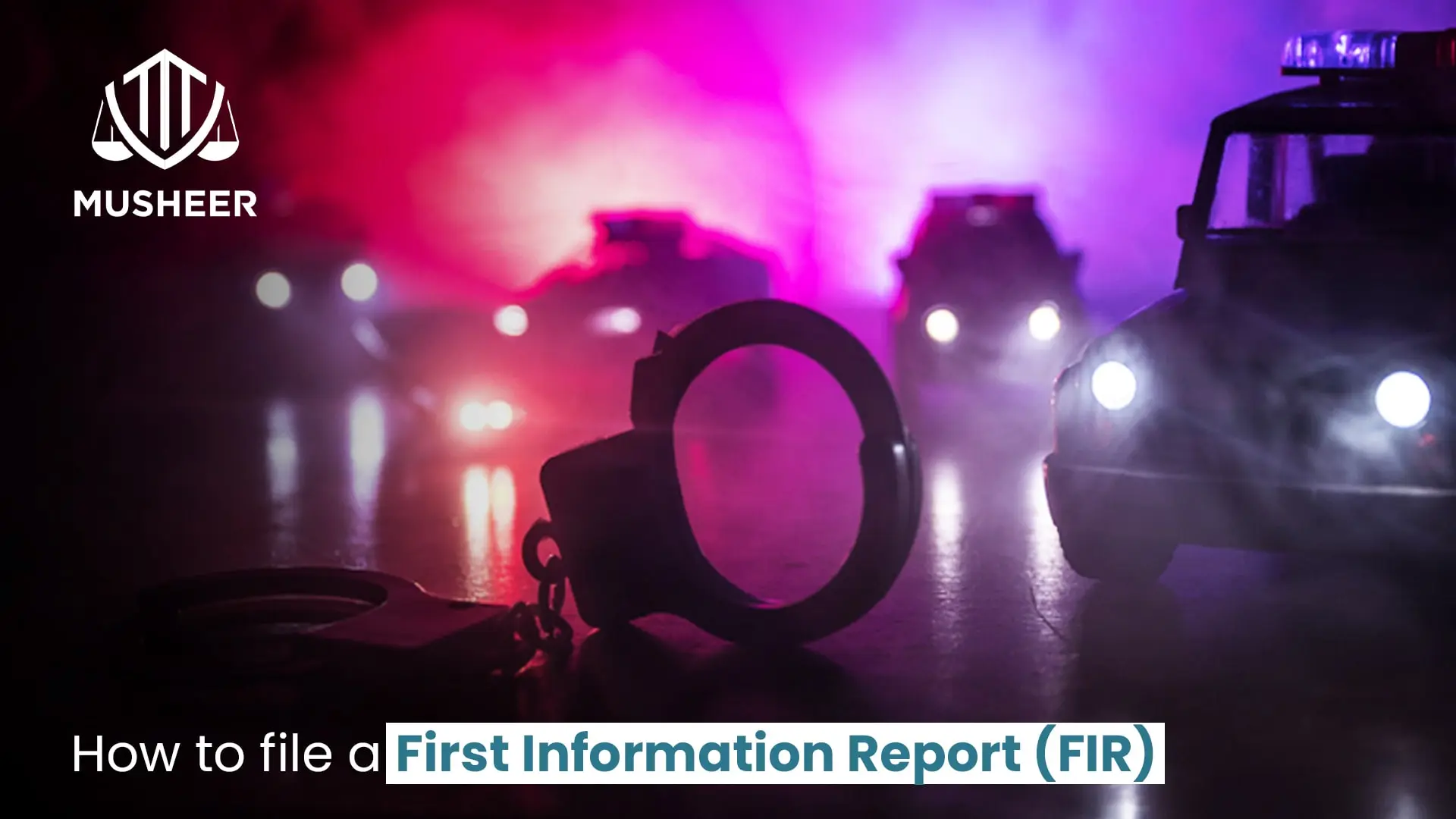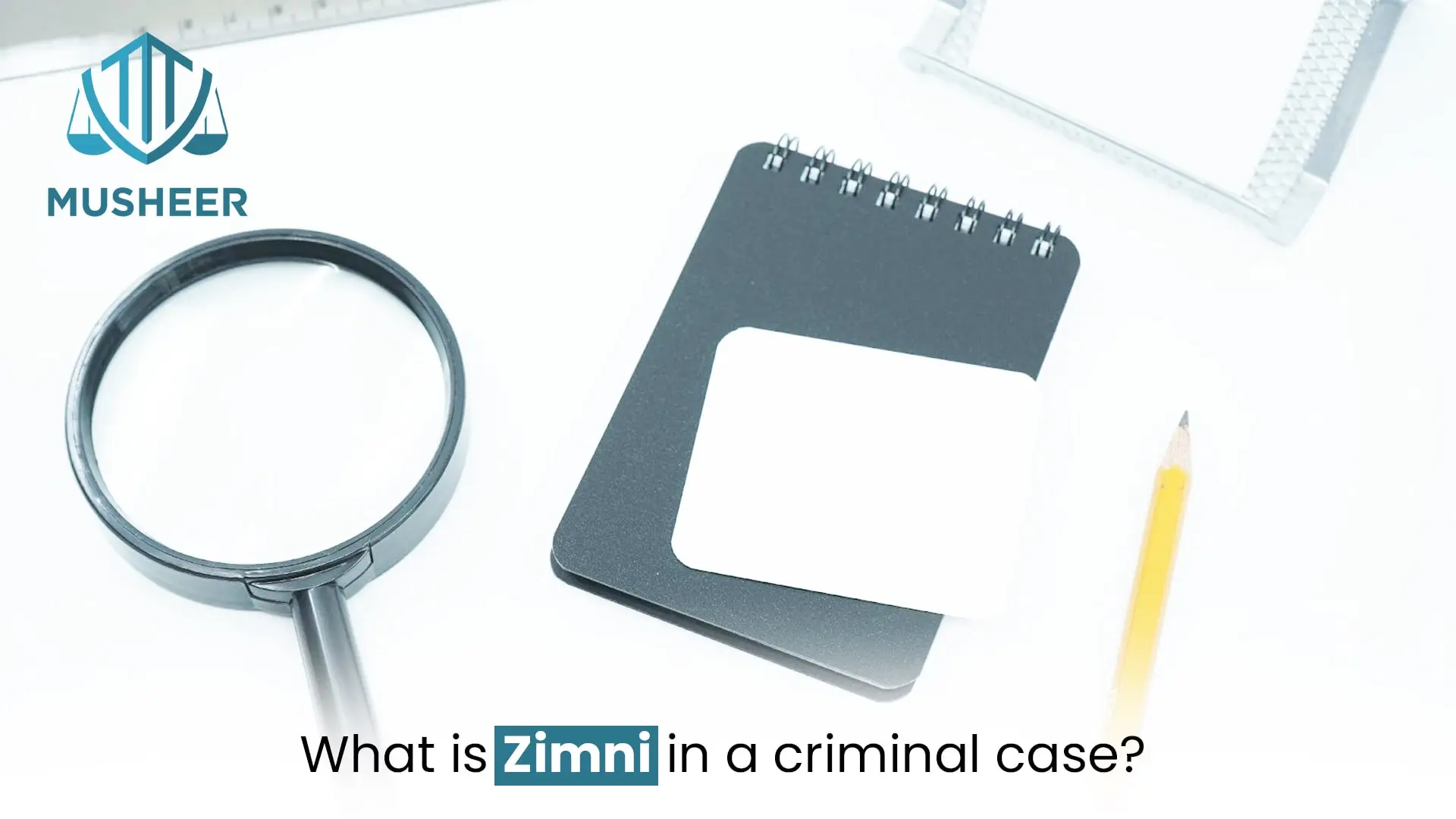What Is An FIR?
First Information Report (FIR) is a written document prepared by the Police when they receive information about the commission of a cognizable offence. It is a report of information that reaches the police's first point in time; that is why it is called the First Information Report. It is essentially a complaint lodged to the police by the victim of a cognizable offence or by someone on their behalf.
- Cognizable Offence: A cognizable offence is one in which the police may arrest a person without an arrest warrant. The police are authorized to start investigating a cognizable case independently and do not require any orders from the court. Cognizable offences generally involve crimes involving a threat to public peace and tranquillity, such as theft, violence, murder, etc.
Normally, apart from general exceptions, serious offences are defined as cognizable and usually carry a sentence of 3 years or more.
- Non-cognizable Offence: A non-cognizable offence is an offence a police officer cannot arrest without a warrant. The police cannot investigate such an offence without the magistrate’s permission.
How to File An FIR in Pakistan: The Procedure
The process for filing an FIR is prescribed in Section 154 of the Code of Criminal Procedure, 1898.
Step 1
If the informant provides information about the commission of a cognizable offence orally, the police must write it down. Otherwise, the FIR can be lodged by the informant in writing also.
Step 2
It is the right of the informant lodging an FIR that the information recorded by the police is read over to him. The police must read it over to him and confirm the details.
Step 3
Once the police have recorded the information in the FIR Register, the informant filing FIR must sign it. The report must be signed only after verifying that the data recorded by the police is as per the details provided by the informant. If the informant cannot read or write, he must ascertain the document by putting his left thumb impression on the FIR.
Step 4
The police must provide the informant with a copy of the FIR free of cost.
Points To Keep In Mind Regarding FIR
- Anyone can report the commission of a cognizable offence to the police. You do not have to be related to the victim to lodge an FIR for a violation against him.
- Even a telephonic message can be treated as an FIR
- Contrary to popular belief that only a written FIR is valid, an FIR can be made orally too
- Police have to register FIR without delay or excuses. Non-registration of FIR by the police without any valid reason is an offense. It can be grounds for disciplinary action against the concerned police officer
- FIR should be made as soon as possible. Intentional delay on the victim's part in filing FIR will have a negative and doubtful impact on the victim
- Filing a false complaint or giving wrong information to the police can result in prosecution under the law for providing inaccurate information or misleading the police (Section 182 of the Pakistan Penal Code, 1860)
- FIR should not consist of exaggerated or distorted facts. It should be clear. It must be a true account of the offence as known to the person filing the FIR.
- FIR is a signed document and is admissible in Court as evidence.
- One who lodges a false FIR intending to injure a person or his reputation can be prosecuted under section 211 of the Pakistan Penal Code, 1860.
Cancellation of an FIR
When a First Information Report (FIR) is lodged, it initiates the criminal justice proceedings. Yet, there are instances where the initiator of the FIR seeks its cancellation. In Pakistan, the procedure for cancelling an FIR can be complex under specific conditions.
The Process of Canceling an FIR in Pakistan
The process of cancelling a First Information Report (FIR) in Pakistan involves both legal and procedural steps, requiring collaboration between the police and the judiciary. Should an individual wish to cancel a filed FIR, they must approach the relevant police station and formally request its cancellation. During this process, the police may seek reasons for cancellation and conduct an inquiry to verify the facts presented.
Upon completing the investigation, if the police find grounds for cancellation, they will submit a comprehensive report to the court, seeking approval to cancel the FIR. The court, upon reviewing the report, will make a decision on whether to proceed with the cancellation. If approved, the court issues an order to nullify the FIR, and the police subsequently carry out the cancellation.
It's crucial to understand that FIR cancellation isn't an automatic procedure and is based on the fulfilment of specific conditions. For instance, if the police have initiated an investigation or if the court has acknowledged the case, cancellation becomes more complex. In such scenarios, the individual who filed the FIR may need to approach the court directly and formally request the FIR's cancellation.
Why Is FIR Needed: Its Importance?
An FIR is important as it sets the criminal justice process in motion; after the FIR is registered at the police station, the police can start an investigation of the case. According to Articles 21, 22, 23, 25, 49, and 50 of Qanoon-e-Shahadat Order 1984, FIR is a relevant fact and is admissible in a court of law.
Who Can Lodge An FIR?
Anyone who knows about the commission of a cognizable offence can file an FIR. Only the victim of the crime doesn't need to file an FIR. A police officer who comes to know about a cognisable offence can also file an FIR himself.
You can file an FIR if;
- You are the person against whom the offence has been committed
- You know yourself about an offence, which has been committed
- You have seen the offence being committed
When Can The Police Refuse To Investigate Under FIR?
Section 157 of the Code of Criminal Procedure provides that the police may not investigate a complaint even if you file an FIR if the case is insignificant or not serious, or if the police think there are not enough grounds to start an investigation. However, the police must record the reasons for not conducting an inquiry and inform the informant.
What is the FIR rule in Pakistan?
An FIR is registered under section 154 of the Code of Criminal Procedure, 1898 (Cr. P.C.) of Pakistan which under the head “Information in cognizable cases” states that information regarding the commission of a cognizable offence given to an officer in charge of the station shall be reduced to writing by him.
What Things Are Mentioned In an FIR?
- The informant’s name and address
- Date, Time, and Location of the incident you are reporting
- The facts of the incident, including the use of weapons (if any)
- Names and descriptions of the persons involved in the incident
- Names and addresses of witnesses (if any)
What Can You Do If Your FIR Is Not Registered?
- You can meet the District Police Officer (DPO) or Capital City Police Officer (CCPO), or other higher officers like the Deputy Inspector General (DIG) of police and Provincial Police Officer (PPO) and bring your complaint to their notice.
- You can send your complaint in writing and by post to the DPO, CCPO, DIG, or PPO concerned. If the DPO, CCPO, DIG, or PPO is satisfied with your complaint, he shall order the registration of FIR.
- You can file a complaint to the District Public Safety and Police Complaints Authority in your district.
- You can file a private complaint before the court having jurisdiction.
How To File An Online Police Complaint?
Alternatively, you can also file online police complaints by visiting the official websites of provincial law enforcement agencies. The new electronic system has made it easier to register complaints and track their progress in arrests and recovery. These databases are also integrated with NADRA and Police Human Resource Management Information System, among others, to ensure data integrity across all systems.
How can the status of an online FIR in Pakistan be checked using CNIC?
To verify the status of a filed First Information Report (FIR) in Pakistan using a Computerized National Identity Card (CNIC) number, you can follow these straightforward steps:
1- Visit the Citizen Portal website: Access this government website which offers diverse services, including FIR status checks.
2- Create an account: If you don't have a Citizen Portal account, create one by providing essential details like your name, CNIC, email address, and phone number.
3- Login: After account creation, login to the Citizen Portal using your email address and password.
4- Navigate to "Complaints": Once logged in, go to the "Complaints" tab in the top menu bar.
5- Enter CNIC number: On the "Complaints" page, locate a search bar. Enter the CNIC number of the FIR filer and click "Search".
6- Check FIR status: The page will display the status of any FIR associated with the entered CNIC number. If no FIR is found, a message indicating no records will appear.
Also keep in mind:
It's crucial to recognize that not all FIRs may be accessible for online checks. Some FIRs might be classified and unavailable to the public online. In such instances, visiting the relevant police station or court becomes necessary to obtain FIR information.
Filing an Online Complaint in Different Provinces/Regions of Pakistan - Your Easy Guide!
In the digital age, filing a complaint has never been more convenient. Whether you're in Islamabad, Punjab, Sindh, Khyber Pakhtunkhwa, or Balochistan, the process is easy.
Islamabad
Head to the official Islamabad Police website and click on 'Submit a Complaint.' Fill in your details – name, address, contact number, CNIC number, city, and the nature of your complaint. Once done, hit 'Submit,' and done! Islamabad Police also offers a Complaint Management System for FIR registrations from the comfort of home.
Punjab
Navigate to the Punjab Police website, find 'Lodge e-Complaint,' and choose to either track or register a new complaint. If registering, provide your name, CNIC, and phone number, then click 'Submit.' Don't forget: you can also call or text 8787 for assistance. To snag a copy of your FIR, hover over 'Request' and select 'Copy of FIR.'
Balochistan
In Balochistan, visit the provincial police website and click 'e-complaint.' This form covers all 33 districts. If you don’t want to choose the digital route, ring or SMS 8787 to file your complaint. Filing a complaint this way is quick and efficient for everyone.
Sindh
For cognizable offences in Sindh, open out the Sindh Police website's 'Complaint Management System.' Input your CNIC and click 'Next' to start your complaint. The same portal lets you track your complaint status effortlessly.
Khyber Pakhtunkhwa
On the Khyber Pakhtunkhwa police site, hit 'Online FIR' in the left-hand panel. Fill in the details in the web form – name, father’s name, CNIC, contact numbers, address, and incident specifics. To track your FIR status, click 'e-FIR,' input your CNIC, and hit 'Search.'
Now that we have talked about the process, laws, and concerns about filing an FIR in Pakistan, let us answer some of the most asked questions about this topic.
FAQs (Frequently Asked Questions)
Can you file an FIR online in Pakistan?
Yes. The facility to lodge an online FIR is available in Pakistan, on the official website of every province’s police department. Here is a video that explains how you can lodge an online FIR in Pakistan.
What is the punishment for a false FIR in Pakistan?
Section 182 of the Pakistan Penal Code provides for a maximum penalty of six months in prison or a fine, or both in case a person deliberately has a false case registered.
What are the contact numbers for filing an online police complaint in Pakistan?
- Sindh Police: 1715
- Punjab Police: 1787
- KPK Police: 8855
- Balochistan Police: 1715
What happens after filing an FIR in Pakistan?
Once an FIR is lodged, the police are obligated by law to start an investigation. This involves various steps like gathering evidence, interviewing witnesses, examining the crime scene, conducting forensic tests, and recording statements, among other procedures.









